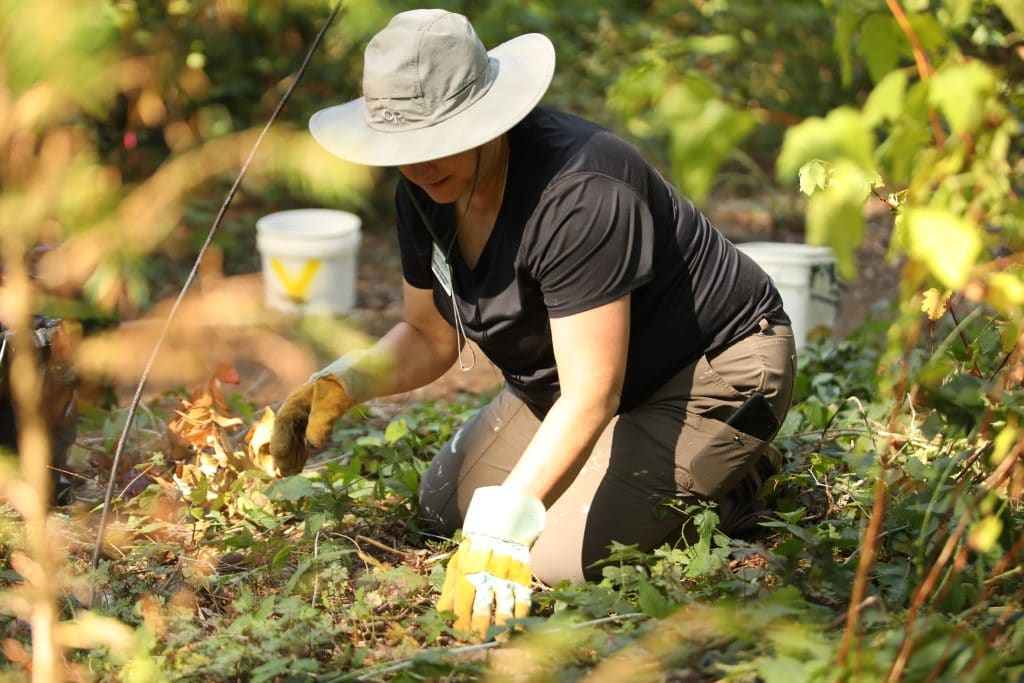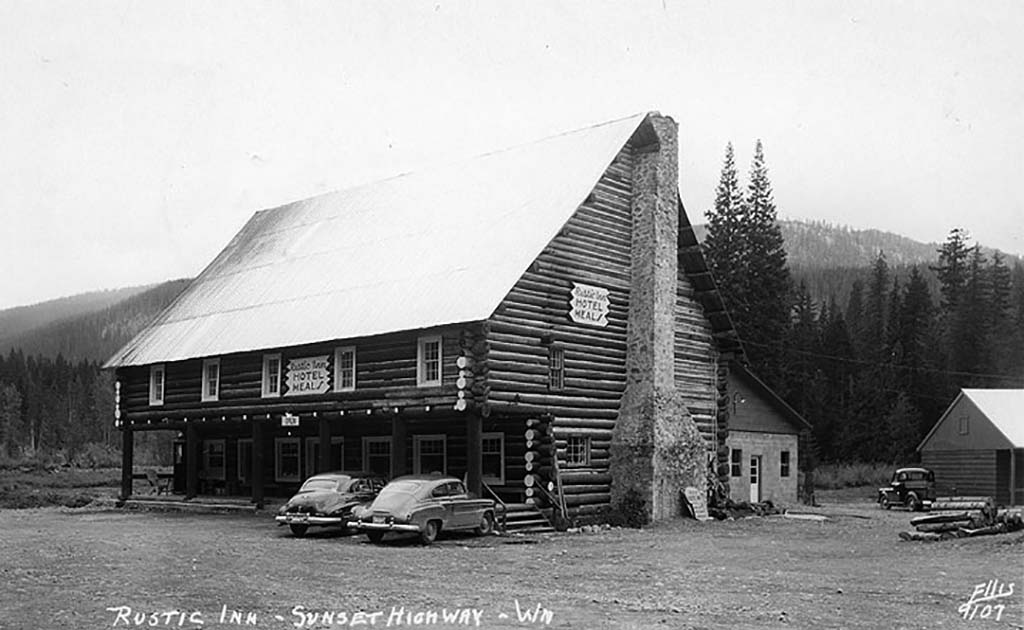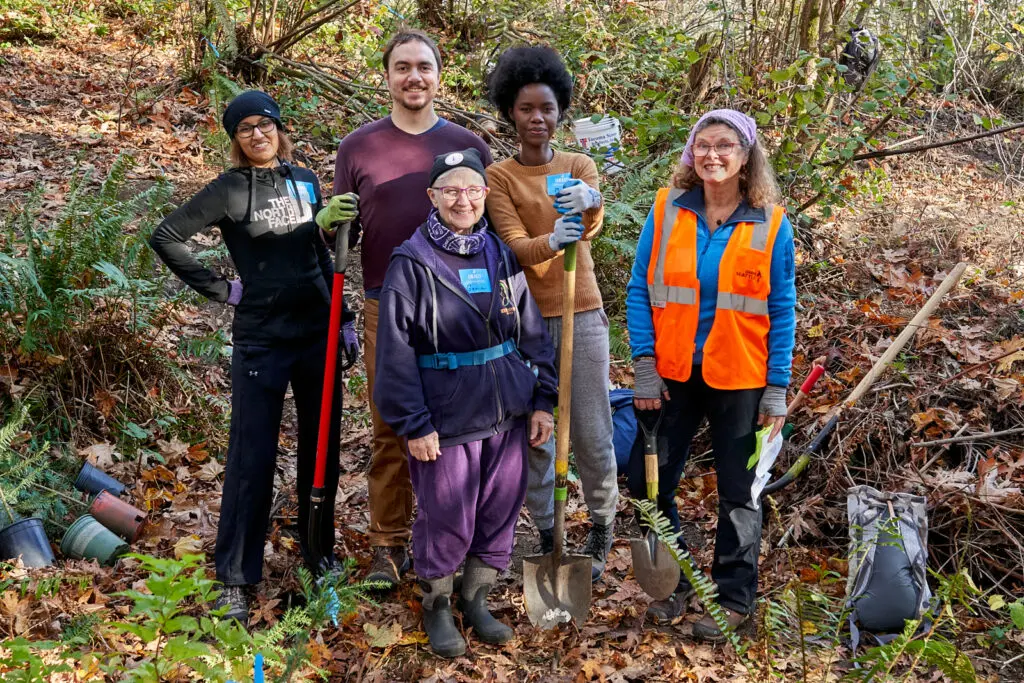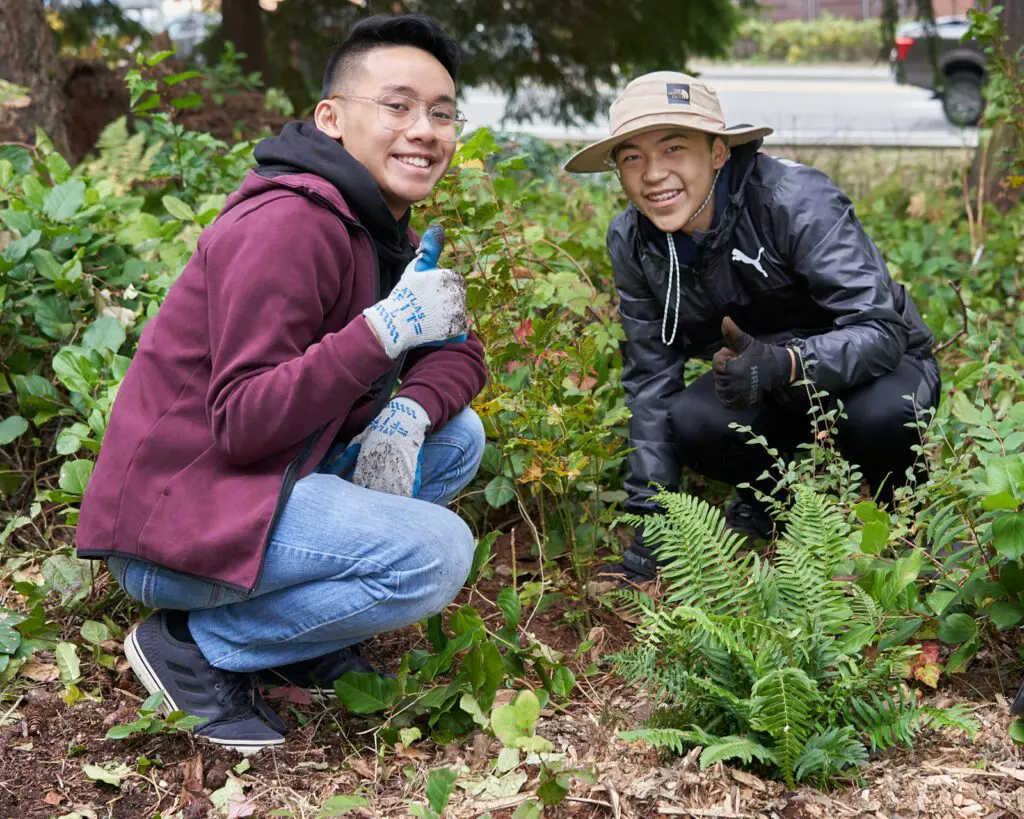Last February Forterra, Fab-5, and the newly formed Hilltop Community Investment Council met for the first time. This 12-member group of teachers, artists, social workers, business leaders, elders, and neighbors came together to advise Forterra on the creation of attainable homes and business space on the site of a former Rite Aid in the heart of Hilltop, a historically Black neighborhood in Tacoma. They gathered in the vacant building, the fixtures ripped out of the walls and floor, the windows boarded up leaving them in darkness. Brendan Nelson of Fab-5, a local nonprofit that works with youth and has led community conversations around Hilltop’s future development, gathered them close and asked how it felt to be in this space. Their response—two conflicting emotions—reflected the frustration of a community left out of the conversation about its own future: sadness at this neighborhood blight and hope for the reclamation of the space for the community.
The creation of the council, two Hilltop community leaders facilitating, and a ground-zero meeting location pointed to a change in the way we partner with communities. Forterra has a long and honest history of community engagement. Our Cascade Agenda, a four-county, 100-year conservation plan, is based on hundreds of conversations with communities across the state. And we have done extensive visioning and planning with rural communities on economic development and conservation. More recently, however, we have taken on the role of attainable housing developer, at Hilltop and elsewhere, and these projects call for new ways of working.
The failed Rite Aid epitomizes much that has gone wrong with recent attempts at neighborhood revitalization. The store was intended to revive a flagging retail district, but it did just the opposite. The property on Martin Luther King Jr. Way at South 11th Street is along an active pedestrian corridor, yet the only entrance to the building is off the parking lot. The symbolism was not lost on the neighborhood. The building, some said, had literally turned its back on the community from opening day. For much of the last decade, the building has sat empty — not benefiting a neighborhood that lacks adequate housing options and whose longtime Black residents and business owners are being pushed out by rising rents.
When you’re working in a community, you can’t just walk in as an outsider and expect to have a true conversation. To grow this into a partnership, we had to build trust.
Rebecca Bouchey, Forterra Managing Director of Community Development
After the deal closes, the first thing to build is trust
Forterra is known for taking quick, bold action, for making deals and accessing resources that might not otherwise be available to community-based organizations. We are also known for moving slowly and thoughtfully, for collaborating with our community partners so that the people whose lives are affected by our projects play a meaningful role in their design. With this reputation in mind, city leaders approached Forterra a few years ago for help in purchasing and developing the 1.7-acre Rite Aid property as attainable housing. In September 2019, after three years of negotiation and with financing from our Strong Communities Fund, we completed the purchase.
Forterra is a regional organization. Hilltop is a neighborhood of about two square miles. “Although we have team members with a history in Tacoma, none of our team is from Hilltop,” says Rebecca Bouchey, Forterra’s managing director of community development. “When you’re working in a community, you can’t just walk in as an outsider and expect to have a true conversation. To grow this into a partnership, we had to build trust.”
An inspiring model and the lessons of experience
Bouchey had two years of experience at Forterra under her belt, enough to know what had worked in the past and what needed to change. In Hamilton, a rural town along the Skagit River hit hard by repeated floods, Forterra is collaborating with residents on the design of a new sustainable development out of the flood plain. Initially Bouchey and her team relied on the classic town hall meeting: Forterra presented. The town responded. The conversation flowed, but it was not as personal as it needed to be and often led to arguments among participants. The process was inclusive, but the timing and delivery of this message needed work. Even offering to meet one-on-one with local residents was not leading to true conversation.
About this time, in early 2019, Bouchey attended a meeting for #DesignTheHill, a Fab-5 initiative engaging the community in a series of developments planned for the neighborhood. The meeting looked different than what she and her colleagues were doing in Hamilton, and Bouchey saw how a community-informed process could work. Fab-5 facilitated a conversation between the community and the project architect, while the developer, Tacoma Housing Authority, sat back and listened. Residents took part in small-group discussions led by community members that addressed values as well as needs and examined the project at hand within the larger neighborhood ecosystem. Participants were getting information, and they were getting it early. But they expected to be more than informed. They expected to be involved.
Bouchey brought all this back to Hamilton. She and her team broke up the town hall dialogue into table conversations, each focused on a particular theme and staffed by a Forterra team member. In this more intimate setting, people began sharing their fears, many of which, it became apparent, were shaped by misunderstanding rather than fact. The trust, which had not been there at the beginning when the dialogue had been muddied by negative media coverage and a contentious town election, began to build.
We had a lot to learn from Fab-5. And based on Hamilton, we knew we had to begin from a place of trust.
Forterra hires a trusted local group and listens
With Hilltop, it became clear that Forterra was not just entering into a relationship with a new community but one which had experience with a sophisticated community engagement model—we had a lot to learn from Fab-5. And based on Hamilton, we knew we had to begin from a place of trust. We met with Fab-5, which had already earned the trust of Hilltop residents, to work with them on a plan for community-driven design in Hilltop. The first step was to evaluate the financial model for the project and make sure that it could provide long-term affordability and sustainability to Hilltop residents through a mix of rental, for-ownership, and market-rate housing combined with commercial and communal spaces.
Next, as a white-led organization working in a community of color, we needed to build trust by demonstrating our willingness to learn about this community and the impact of structural racism. The entire Forterra real estate transactions team together with Mithun, the project architect, went through a two-day anti-racism training to learn about the structural racism, such as discriminatory lending practices and underinvestment, that created many of the neighborhood’s current challenges.
In November 2019, Fab-5 and Forterra convened a focus group to understand how residents wanted to participate in the planning process, a preliminary step we had overlooked in Hamilton. They made it clear they did not want us knocking on doors or calling them on the phone. They wanted a true partnership—an opportunity to be part of the early project planning and to advise Forterra on key decisions that are often made long before the community ever learns of a project. The final question of the evening—“When’s the next meeting?”—suggested we were off to a good start.
Based on community feedback, Fab-5 and Forterra made a plan for community-driven design on Hilltop: The Community Investment Council would be formed right away and would be part of the early project planning. #DesignTheHill would continue as a series of public meetings: three community design labs with the architect and two business forums to select tenants for the commercial space.
Transparency around what is fixed and what is flexible
“Every time we approach a topic with the Community Investment Council we’re very clear about what we know and what we don’t and where we can take it in a different direction based on input and where we can’t,” says Bouchey. “As long as you’re clear upfront on that, then the community can go there with you.” With Hamilton, Bouchey now realizes, we did not communicate this distinction clearly enough, leaving many to mistakenly assume that plans had been finalized behind closed doors.
Thanks to Fab-5, we did better in Hilltop. From the beginning, Fab-5 and the council were concerned that the neighborhood would be shut out if home prices were set too high. Our original plan was to price them within reach of people earning 80% of the area median income, which is the standard in Tacoma at large but not one that would work in Hilltop. After hearing from our partners, we brought the income limit down to 60%. Even at this price point, however, not every Hilltop resident will be able to afford a home, but when we explained that this was as low as our financial model would allow, our partners agreed to the change.
Seeking out community wisdom does not mean abdicating expertise. We were brought in for a reason—our financial and real estate expertise, for sure, but also our skill at convening stakeholders and willingness to learn and adapt. It is this give and take between what Forterra can do and what the community wants that energizes the planning and engenders trust in the partner and process alike.




